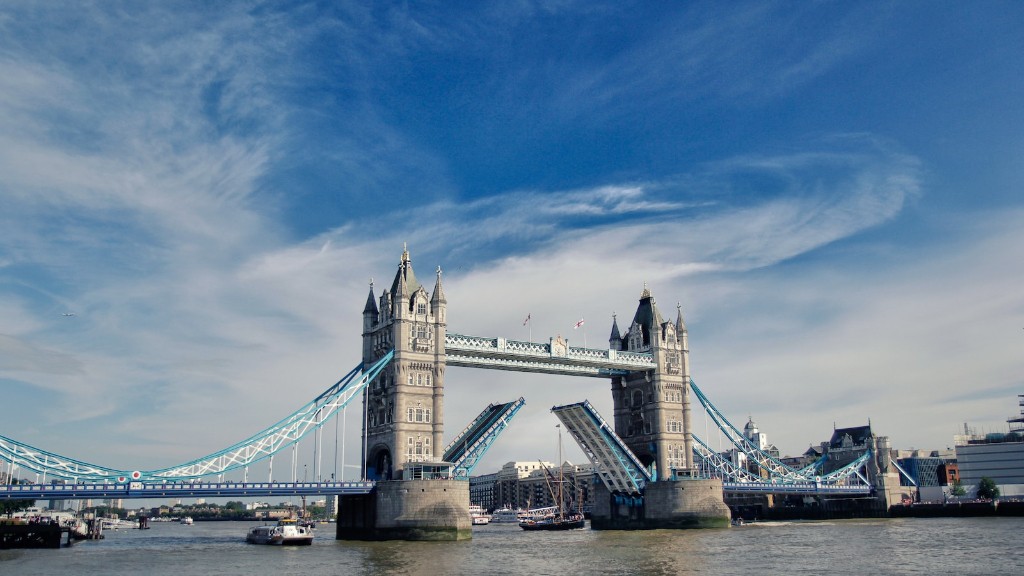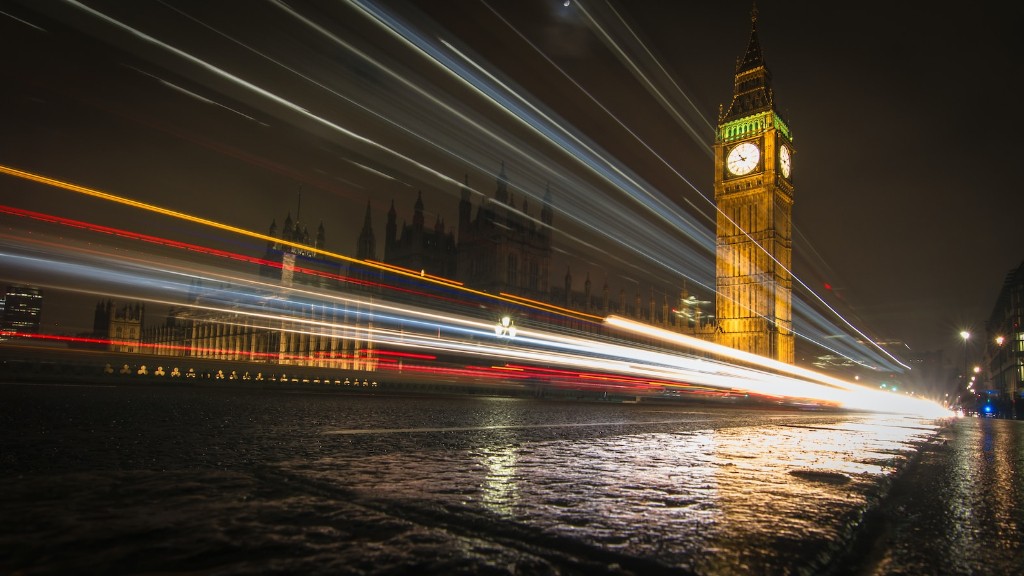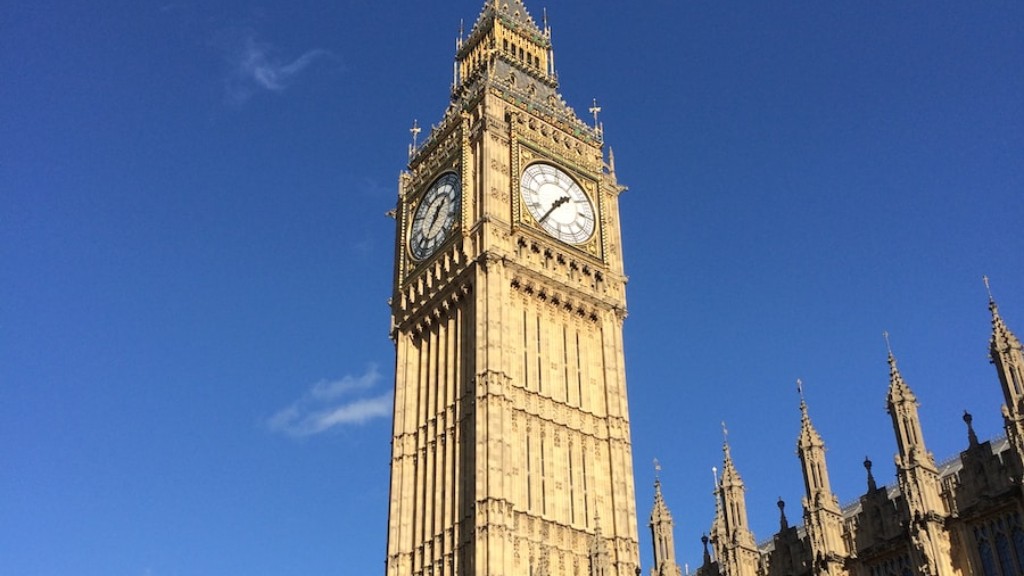In today’s world, British democracy is often referred to as a ‘constitutional democracy’, meaning it relies heavily on constitutional principles that are set out in writing. But, does the UK have an ‘unwritten constitution’? To answer this question, an exploration of the country’s long democratic history is necessary.
The UK has a rich history of democratic traditions, including a centuries-old monarch ruling over the country and a Parliament that began to take shape in the late 15th century, when Henry VIII declared himself ‘supreme head of the Church of England’. Nowadays, the UK is a multi-party parliamentary democracy and a mixed-market economy. In spite of this, the UK is still said to possess an ‘unwritten constitution’.
The UK’s unwritten constitution relies on the influence of the country’s institutions, laws and customs to provide a system of governance. The lack of clear-cut laws to restrict the actions of government and the people means that the political parties must independently agree upon which procedures should be applied when it comes to running the country. This method of government is seen as key to the UK’s unwritten constitution.
The main sources of the UK’s unwritten constitution include case law, statutory law, custom and conventions. Although these sources are not written down in one single document, they still form the foundation of the country’s constitutional democracy.
The most prominent feature of an unwritten constitution is the fact that it is not legally binding. Instead, it relies heavily on political conventions that are passed down through generations. This means that the UK’s unwritten constitution can change over time in response to the various issues and events that the country faces. As a result, it is seen as a very flexible form of government and provides a significant amount of freedom for the people of the UK.
Another important aspect of the UK’s unwritten constitution is the fact that it is not codified. This means that constitutional principles are not always explicitly stated and are therefore open to interpretation and reinterpretation. For example, the country’s laws can be adapted and changed as the political situation in the country evolves. This means that the UK’s unwritten constitution is constantly evolving to meet the demands of the people.
Furthermore, the lack of a written document also allows for a greater degree of creativity when it comes to constitutional change. This is due to the fact that constitutional laws can often be interpreted and applied in a variety of ways, depending on the circumstances. This means that the UK’s unwritten constitution can be used to promote new ideas and systems of government.
Significance
The UK’s unwritten constitution is significant as it provides a degree of dynamism and flexibility to the country’s government. It also ensures that the nation’s democratic principles are kept in balance. As a result, the UK has been able to maintain a democratic system of government for centuries, allowing its citizens to live in freedom and with a sense of security.
The UK’s unwritten constitution also facilitates compromise between the various parties in the country. This is due to the fact that constitutional laws are open to reinterpretation and can be adapted to meet the needs of the people. This means that the country can remain united while allowing for divergent views to be respected by the political parties.
The UK’s unwritten constitution also ensures stability and continuity of government. As the country’s political system is not bound by a single document, it is easier for the UK to adapt to changes in the international environment. This allows for the country to maintain its competitive edge and ensure its continued prosperity.
Finally, the UK’s unwritten constitution enables the citizens of the country to have a direct say in the running of the country. This is due to the fact that the procedures of government are not set in stone and can, therefore, be tweaked to suit the needs of the citizens. As a result, the people are able to vote for whichever party they wish to govern the country and are able to express their views openly.
Conclusion
It is clear that the UK has an unwritten constitution that is an integral part of the country’s democracy. The lack of a written document means that the UK can adapt and evolve to suit the needs of the people and the changing political environment. This provides the country with an unparalleled degree of flexibility and ensures that the nation’s democratic principles are kept in balance. The UK’s unwritten constitution also facilitates compromise between the various parties involved in the running of the country, and enables the citizens to have a say in the running of the nation.
Impacts
It is imperative to consider the implications of an unwritten constitution. The lack of a single document to codify the nation’s democratic principles can lead to uncertainty about the government’s ability to uphold its commitments or to the state of the nation’s legislative framework in the long term. This is due to the fact that the laws do not exist to limit the scope of the government’s actions. Furthermore, the potential for constitutional change and adaptation to the needs of the people can also lead to a lack of predictability in the country’s government, as there is no clear direction as to which laws will apply.
The lack of certainty in the nation’s government can also lead to political instability. This is due to the fact that the government’s actions are not bound by a single document, meaning that it is difficult to predict how the government will act in certain situations. Furthermore, the potential for constitutional change can also lead to a weaker government as the two main political parties may not necessarily agree on the same laws and procedures.
In addition, the lack of a codified document also means that the country’s laws and procedures are open for interpretation. This can lead to confusion and delays in the implementation of policies and laws. Furthermore, the lack of a set of constitutional principles can make it more difficult for the people of the country to know their rights and to ensure that these rights are respected.
Comparisons
It is also important to consider how an unwritten constitution compares to a written constitution. A written constitution is often seen as a more stable form of government as the laws are clearly stated and cannot be changed. This means that it is easier to predict how the government will act in certain situations. Furthermore, it is easier for people to know their rights and to hold the government to account if these rights are violated.
On the other hand, an unwritten constitution offers greater flexibility, as the laws are open to reinterpretation and adaptation. This enables the nation to adapt to changing circumstances and to adjust its laws and procedures as the political situation of the country evolves. Furthermore, an unwritten constitution gives the people of the country more of a say in the running of their government, as they can vote for the political party of their choice and are able to express their opinions openly.
In conclusion, it is clear that an unwritten constitution can offer many benefits, but it is also important to consider the potential risks it can bring. The lack of a codified document means that the government’s actions are not limited by the law and that the laws and procedures are open to interpretation. Furthermore, the lack of certainty in the nation’s government may lead to political instability and confusion about the country’s laws and procedures.
Future Implications
The implications of an unwritten constitution for the future of the UK are difficult to predict. As the political situation of the country evolves, the nation’s laws and procedures may need to be amended to meet the demands of the people. This can be done through the government’s ability to adapt its laws and procedures. However, the lack of a codified document can also lead to uncertainty in the future of the country’s government.
Furthermore, the lack of a written document can also make it difficult to control the actions of the government, as the laws are open to reinterpretation and adaptation. Without a set of constitutional principles to adhere to, the government may become vulnerable to changes that could pose a threat to the nation’s stability. As a result, it is important that the UK maintains the flexibility of its unwritten constitution while also ensuring that the democratic principles remain in balance.
Finally, it is also important to consider how the UK’s unwritten constitution can be used to promote progressive change. This can be done through the use of conventions and the adaptation of laws as the political environment of the country evolves. As a result, the UK’s unwritten constitution can provide a platform for the nation to promote positive policies and initiatives.
Summary
In summary, the UK has an unwritten constitution that relies heavily on the influence of the country’s institutions, laws and conventions to provide a system of governance. This type of constitution offers the nation a great deal of flexibility and enables the people to have a say in the running of the country. However, there are also potential risks associated with an unwritten constitution, such as instability and confusion about the laws and procedures. It is therefore important to consider how the UK can use its unwritten constitution to promote positive change while also ensuring that the nation’s democratic principles are kept in balance.





